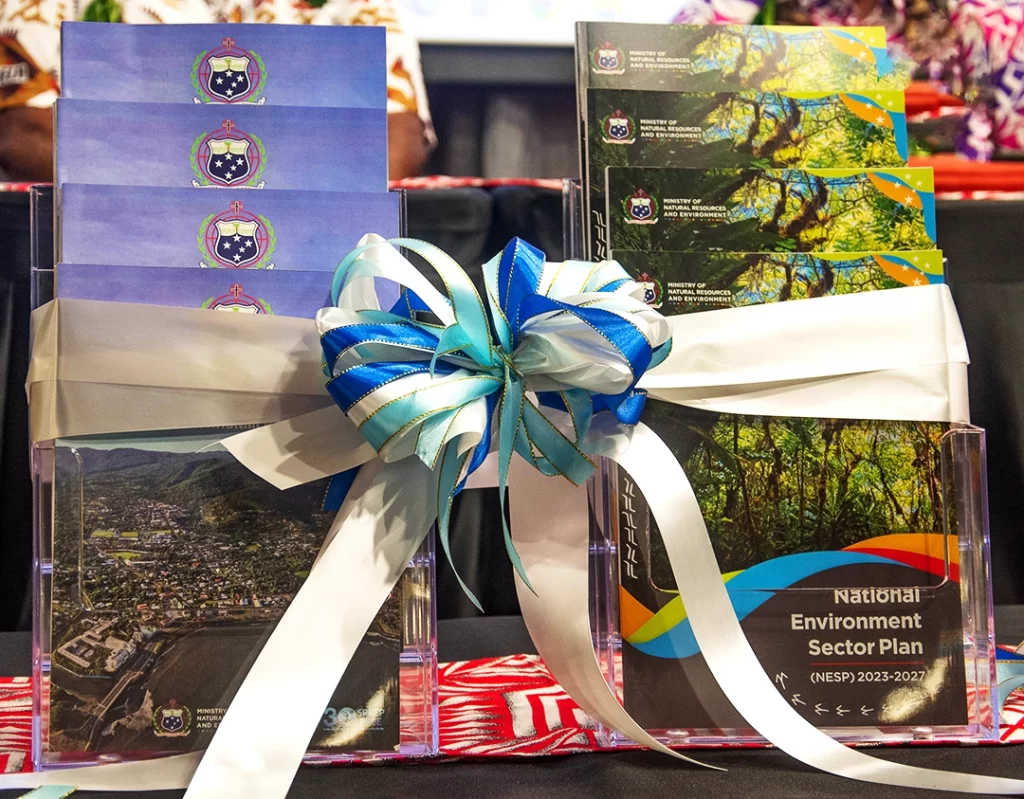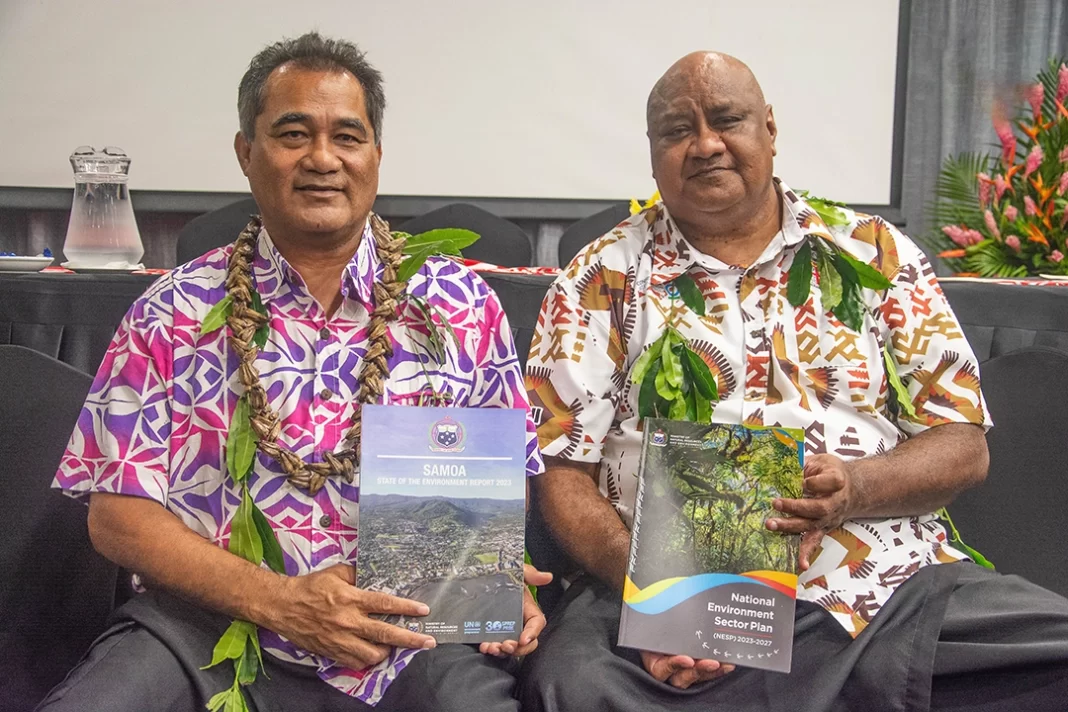Apia, Samoa – The Government of Samoa officially launched its Fourth State of Environment (SOE) Report 2023 and National Environment Sector Plan 2023-2027 at an event held on Friday at Taumeasina Island Resort. The keynote address was delivered by Honourable Minister for Natural Resources, Environment, and Lands, Afioga Toeolesulusulu Cedric Pose Salesa Schuster, in the presence of Deputy Prime Minister, Cabinet Ministers, and distinguished guests.
The Fourth SOE Report, produced in 10-year cycles since 1993, provides an overview of Samoa’s environmental status and acts as a monitoring tool for the country’s environmental progress. In his address, Minister Schuster acknowledged the role of the Secretariat of the Pacific Regional Environment Programme (SPREP) in supporting Pacific Island nations in producing these reports. He highlighted the challenges Samoa faces as a small island developing state, noting that environmental impacts are influenced by external factors such as climate change and invasive species.
“Producing State of the Environment reports provides not only a snapshot of our environment but also a critical monitoring tool,” said Minister Schuster. He acknowledged that the 2023 report presents a mixed picture, with both improvements and deteriorating trends in terrestrial, marine, and coastal areas. “While we have seen some progress, ongoing threats like climate change and invasive species continue to pose significant risks.”
One of the key takeaways from the SOE Report was the pressing issue of waste management, particularly in densely populated areas like Apia, where non-compliant septic tanks and pit latrines pose groundwater contamination risks. “The Apia urban area continues to threaten vital ecological services critical for flood and coastal management,” he noted.

Samoa’s commitment to global environmental agreements remains strong, with the country phasing out harmful substances like chlorofluorocarbons (CFCs) and ongoing efforts to eliminate hydrofluorocarbons (HFCs). However, the report emphasized the challenges posed by rising sea levels and higher temperatures, which have increased by approximately 0.60°C from 1980 to 2018.
In conjunction with the SOE Report, the National Environment Sector Plan 2023-2027 was introduced as a framework to guide the government’s environmental response over the next five years. Minister Schuster emphasized the importance of collaboration in tackling the environmental challenges ahead. “The NESP is a valuable tool, but it alone cannot achieve our goals. It requires collective effort from all sectors—government, private, and civil society.”
In closing, Minister Schuster expressed his gratitude to the partners who made the SOE and NESP possible. He acknowledged SPREP, UNEP, and Dr. Posa Skelton for their guidance and technical assistance.
“There’s still much to do, but with commitment and perseverance, we can overcome the environmental issues we face.”






